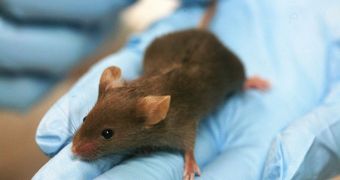According to a groundbreaking new research, it would appear that being subjected to chronic stress makes women a lot more susceptible to experiencing an increase in the speed at which breast cancer tumors form and develop.
Scientists at the University of California in Los Angeles (UCLA) say that stress essentially acts like a “fertilizer” of some kind, setting the stage for accelerated tumor progression.
That team that made the discovery is based at the UCLA Jonsson Comprehensive Cancer Center. Experts with the effort say that the work was conducted on lab mice, but add that the results may have relevance for humans as well.
One of the most important conclusions in the experiment was that stress is the main factor that affects the functioning of the immune system, which is trying to fight the cancer.
Analysis of unsuspecting mice models revealed that stressed out animals featured immune systems whose cells were in fact aiding and abetting tumors, rather than fighting against them.
The differences between stressed and chill mice turned out to be remarkable. Those animals that were under chronic stress showed a 30-fold increase in cancer spread throughout their bodies.
The fact that stress plays a role in promoting cancer development in humans has been suspected for a long time, and yet this is the first study to actually develop a model showing this is the case.
In addition to making this demonstration, the research team also detailed the pathway used to change the biology of immune cells.
Details of the conclusions and the work methodology appear in the September 15 issue of the esteemed scientific journal Cancer Research, a peer-reviewed publication.
“What we showed for the first time is that chronic stress causes cancer cells to escape from the primary tumor and colonize distant organs,” explains Erica Sloan.
She is the first author of the research paper, and holds an appointment as a scientist at the Jonsson Cancer Center.
“We not only showed that this happens, but we showed how stress talks to the tumor and helps it to spread,” adds Sloan, who is a researcher at the UCLA Cousins Center for Psychoneuroimmunology.
“This study provides evidence for a biological relationship between stress and cancer progression and identifies targets for intervention in the host environment,” reveals the director of cancer prevention and control research at the Jonsson Cancer Center, Dr. Patricia Ganz.
”Because of this study, we may be able to say to a patient in the future that if you follow this exercise regimen, meditative practice or take this pill every day, it will help prevent recurrence of your cancer,” she adds.
“We can now test these potential interventions in the animal model and move those that are effective into the clinic,” Dr. Ganz concludes.

 14 DAY TRIAL //
14 DAY TRIAL //